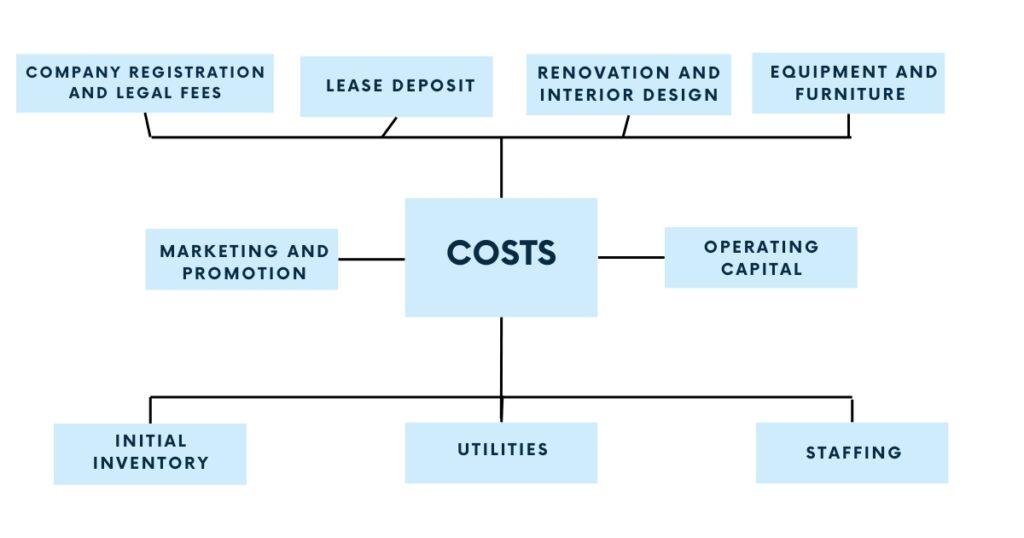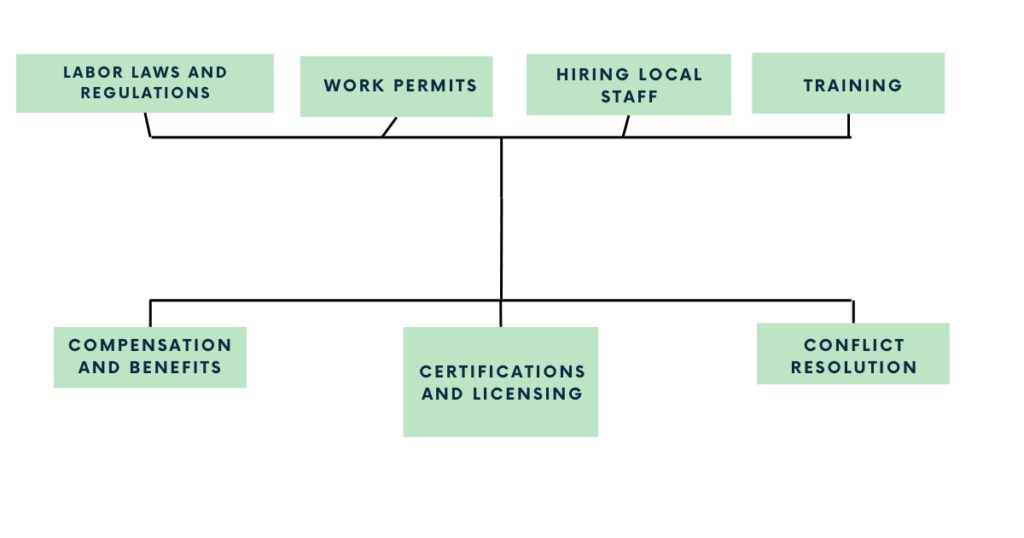Call us now:

Open a restaurant in Thailand.
To open a restaurant in Thailand can be an exhilarating and rewarding venture for budding restaurateurs and seasoned culinary professionals alike. The country’s vibrant culture, rich culinary history, and booming tourism industry provide a unique and dynamic backdrop for gastronomic endeavors.
Table of Contents
What licenses and permits do you need to operate legally?
The abundance of licenses and regulations required to open a restaurant in Thailand can perplex even the most seasoned restaurateurs. Obtaining the necessary approvals is paramount for legal operations and food safety compliance. Here is an overview of the critical steps :
- Company Formation: Foreign investors must register a business entity like a limited company with documentation submitted to the Thai government.
- Work Authorization: Non-Thais need a work permit or appropriate visa obtained through an intricate application process that often demands professional guidance.
- Food Stand Permit: Local councils issue licenses permitting food sales to the public from a commercial kitchen.
- Hygiene Certification: As part of opening a restaurant in Thailand, health inspectors assess cleanliness
- Spirit License: Alcohol distribution faces tight restrictions managed through a byzantine liquor licensing regime.
- Entertainment and Music Permit: Playing media or hosting shows may trigger additional permissions.
- Signage Approval: Displaying signs outside requires authorization from local authorities.
- Building Clearance: Renovations and new constructions typically demand construction permits following plans.
- Coverage: Liability, property and worker insurance protects against unforeseen costs.
- Trade Approvals: Imports of inventory and appliances may need clearance for cross-border shipments.
Consultants prove invaluable for navigating this labyrinth, as the volume of requisites and bureaucratic nature can frustrate even the most determined restaurateur. Starting the process quickly is wise to open legally with all paperwork in order.
How do you navigate the Visa and Work Permit process for foreigners ?
Navigating visa regulations and work authorization protocols for foreigners can prove challenging but pursuing counsel from experts streamlines compliance. Here are the key stages to consider when you want to open a restaurant in Thailand :
- Business Authorization (Non-Immigrant B Visa): Prior to a work permit application, procuring this visa permits entry to conduct enterprise or occupation. Issued at Thai embassies upon company invitation letters, registration records, and fiscal files.
- Work Permit: With the business visa granted, employment sanction seeks sponsorship from a Thai-registered company providing registration papers, tax filings, and operational particulars. Personal documents like passports and copies of qualifications also factor.
- Extension Necessities: Annual work permit renewal necessitates updated paperwork and revisiting the visa application rhythm. The authorization usually lasts one year, requiring restoration to maintain the business visa status.
- Immigration Check-Ins: Permit holders must report addresses every 90 days online or directly to local immigration, as stipulated.
- Legal Guidance: Visa/permit intricacies prompt many foreigners pursuing specialists in Thai law for navigating preparation, documentation, and communication assistance.
- Adherence Importance: Strict adherence to all stipulations and regulations regarding visas and permits, or fines, deportation, and entry bans could result. Requirements may fluctuate too, so confirming current information from authorities remains key.
What budget should you plan for a Thai food business?

What Are The Staffing And Labor Considerations to open a restaurant in Thailand ?
Staffing and labor considerations are vital when you want to open a restaurant in Thailand. Here are key factors to keep in mind :

Ready to open a restaurant in Thailand?
Navigating licenses, permits, and legal steps can be overwhelming. Stay updated through official sources like the Department of Business Development and Thai FDA. Getting professional help can ensure your Thai food business starts smoothly and legally.
